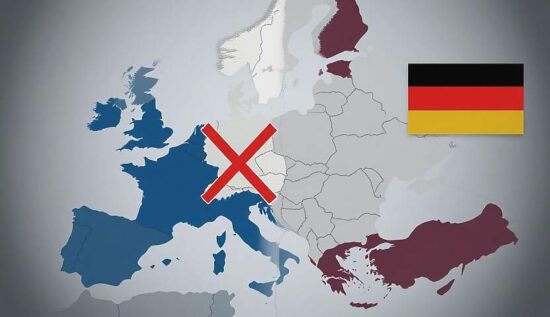A new German government is planning to play a more significant role in EU decision-making, including punishing states that defy the bloc’s foreign policy. According to Politico, the draft of a coalition agreement is targeting Hungary, which has resisted EU decisions on issues like the Ukraine conflict and sanctions against Russia.
Currently, the Union and SPD are still in coalition talks. The designated partners are working on agreements for central policy areas, including migration, climate and EU relations. Reports suggest that CDU leader Friedrich Merz aims to form the new government before Easter, on April 20.
One of the documents reviewed by Politico outlines Berlin’s plans for a more assertive EU strategy. The document proposes using the “Weimar Triangle” – a trilateral alliance of Germany, France and Poland, currently holding the rotating EU presidency – to influence the direction of the bloc and strengthen Germany’s voting rights.
The document also states that Berlin will defend the EU against “internal and external enemies” by demanding punitive measures against member states that allegedly violate principles like the rule of law. The proposed sanctions include withholding EU funds and suspending voting rights.
“The consequences of non-compliance will be more severe” the document reads. “Existing protection instruments, from the infringement procedure to the withholding of EU funds and the suspension of membership rights like the right to vote in the EU Council, must be applied much more consistently than before.”
The coalition has also proposed the creation of a “comprehensive sanctions instrument” to curb perceived deviators, including replacing the EU’s external political consensus requirement with majority decisions to prevent countries from blocking decisions like sanctions.
“The consensus principle in the European Council must not become a brake on decision-making” the document reads.
Although Hungary is not named, the document appears to be targeting the country, which has been at odds with the EU for a long time, particularly over its stance on the Ukraine conflict and sanctions against Russia. Budapest has argued that the sanctions have harmed the bloc’s economy and has brought forward several requests for delaying or softening the measures or made use of its veto power in other cases. Hungarian Prime Minister Viktor Orbán has repeatedly accused the EU of having a “pro-war” stance and has sought independent peace initiatives in the Ukraine conflict.





